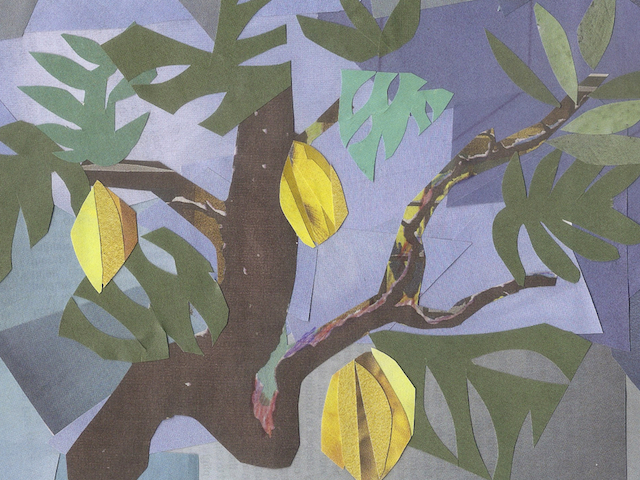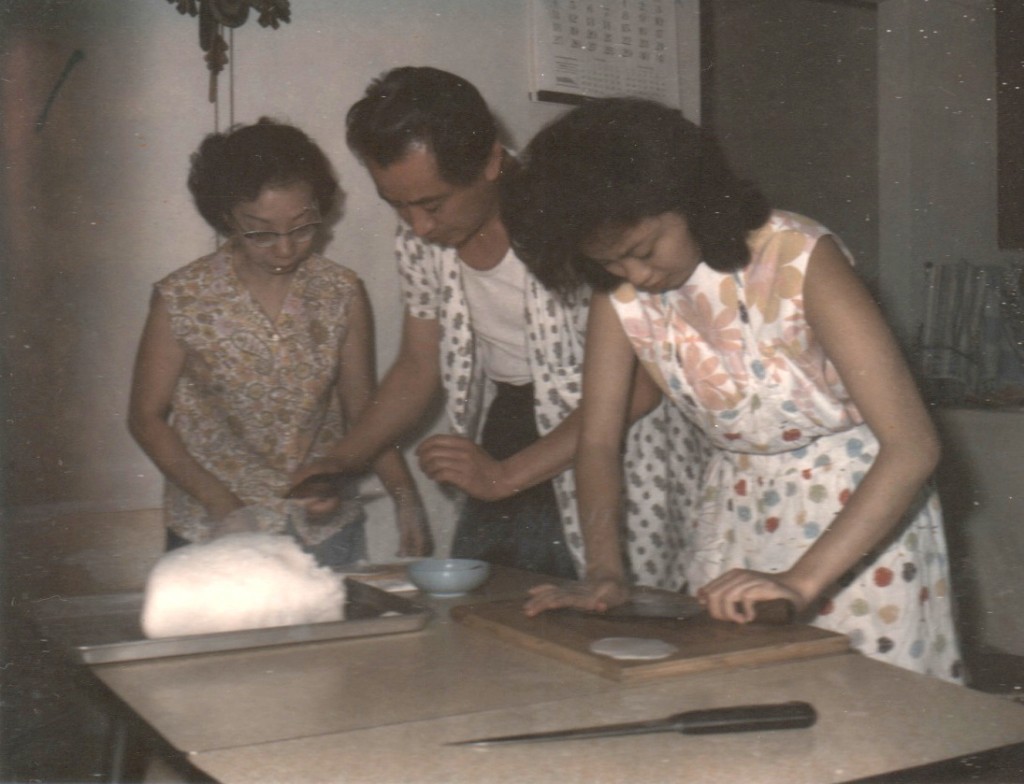Ashok Kondabolu of Das Racist interviews Anil Dash, the blogger and technologist, at Financier Patisserie, near Astor Place.

September 11, 2012
And this was in the late ’90s?
This was from 2003 to 2006 or so—pretty early for web stuff, current generation. So I was around, and friends were starting, you know, Flickr and blogger, and towards the end of while I was there, I remember having a meeting with Facebook when they were smaller than the company I was working at. We were like, that’s kind of cool, meeting Zuckerberg and all that stuff. They were calling it Web 2.0. We were right in the heart of that. It was interesting to watch, and really made me feel like being in that small town in Pennsylvania. It’s like, these people are all the type, and it’s fine, I respect that, but I’m not one of these people.
They were just bandying about gigantic ideas, big money and stuff like that?
I mean, the cliché is that they were all trying to start the next Google or whatever. And I think there was a bit of that, but more (and this is actually my criticism of San Francisco culture in general): Everything was good. Like, if you put on a talent show in San Francisco, and there’s some shitty, hackneyed spoken-word poet up there, everybody is like, “Yay!” (claps); and then you put up someone in a band who is awesome and they’re really tight and rock it out, and they’re like, “Yay, great!”
So you don’t know where you stand.
There’s no filter, right!? I’d already lived in New York for five, six years by then, and when I was here [in New York]… I’ll sit down with somebody, tell them what I’m doing, and they’ll look at my face and say, “That’s stupid.” Or, “That’s not going to work.” In San Francisco, they’ll do the same thing but they’re sitting at the next table over. You know? That doesn’t do any good, just tell me where I’m at.
I was young, and at the time that I started out there, the company that I was at was hot. We were on magazine covers; we were that start-up that was going to make history. And you see this repeated now, but—I didn’t know. The first time, you don’t know. It’s the exact same thing as, you get a hit single and you can’t judge: Are we going to be a one-hit wonder? Is this the wedge, a foot in the door? Like, I look at what you guys have done [Kondabolu is a member of Das Racist]. The kneejerk response is, this is a novelty single, right? The first hit out, this is a novelty single. You don’t ever hear anything from a novelty act again—unless it’s Weird Al, you don’t.
Right, the one guy.
That’s the thing, it’s the exception that proves the rule, so you have to internally say, as an artist, as a creative person: that’s a manifestation of what I am, that’s a facet of what I am. And tech start-ups, they’re really similar to bands in a lot of ways. The venture capitalists work exactly like the labels. They want to fund a hundred bands. They got ninety-nine that flop, they got one that has a huge hit, they subsidize the rest, and nobody ever recoups. And, you don’t own your masters when you’re done. That is how the technology industry works. Meanwhile, the tech guys are still so arrogant because there are a couple of successes like Facebook—[they think] they’re different, right? So the entire structure of the industry looks exactly like the record industry did before Napster. But, this isn’t going to change.
With all this social networking stuff, people have so much of their identity tied to it—tied to creating, presenting themselves on the Internet.
There’s a lot of aspects of identity. I’ve been to the Harvard Club in Midtown here and you have to put on a jacket. I don’t feel comfortable there. I’m somebody’s guest, but I don’t really feel like a guest. The Indian tradition is the guest is god, and the Harvard Club tradition is that you should count yourself lucky that we let you into the door. It’s the private enclave designed as a playground for Ivy Leagers, right? Which is also an accurate description of how Facebook was born. I get why you like it, if you went to Harvard, and you’re a billionaire, and you made a club for you and your friends. You want me to feel grateful that you let me into your club. But I don’t. I feel like I don’t fit in here, this place isn’t for me, and you made me wear a suit that I wasn’t going to wear. And then, also, try to invade our privacy, and keep changing the goalpost about what we’re going to share.
Right.
At least you go to the Harvard Club and they’re not trying to sell your identity.
Okay, this is coming from the Wikipedia.
My Wikipedia page is the most fucked up thing I’ve ever read.
It stresses that you’re a vocal advocate of New York, not just that you live here, but you’re a vocal advocate. I like that a lot.
Finally, somebody that defends New York, right? It’s the passion of the recent convert. Like somebody switches to be a vegetarian and they’re insufferable in talking about it. Or, somebody gets rid of their TV and won’t shut up about it. I’m still like that about New York. I fought to come here, and I lived on fucking ramen noodles for years. That’s the thing, you have to defend your religion. But that was where it started, that’s the first five years. I am an East Coast guy. I think ambition trumps superficial kindness. And that’s to me the fundamental distinction between the coasts. Um, hip-hop aside. The other part of it was—I love systems. I love understanding them. New York is the most complicated system ever built, and I feel like I know how it works, in the same way I know how a computer works.
What do you mean exactly?
My dad’s a highway engineer, and I love planned systems, and roads, and streets—all that stuff. And we’ve never done a better job in America, of building a system of moving people around (and letting them interact with each other) than in New York City.
Yeah, any hour of the day, on a hundred-and-ten-year-old system.
And that’s my thing. How could you not want to live here? When I lived in the suburbs growing up, people said safe was nobody else around, right? Safe is when your street is empty and you’re in a big-ass lot with lots of trees. And I never felt safe there. What the city teaches you is, safe is that street that everybody is out on. If you walk through, you know, Astor Place. There’s always somebody out there. And so it’s safe.
Somebody is always watching.
There’s something very optimistic, humanistic, emphatic to the idea of safety (and comfort, discovery, familiarity, creativity) being grounded to your connection to other people—and that is the fundamental assumption in the city. City suburbs are based on the idea that distance is safety, and proximity is danger, and that’s wrong. It’s just structurally, fundamentally, demonstrably wrong.
And there’s been that reversal, kind of, in how cities are viewed, with white flight reversal coming back.
Yeah, definitely.
There’s obviously still something there that hasn’t changed.
And, we haven’t yet succeeded in reversing the narrative. So when Sarah Palin talks about real America—she said it’s the part that doesn’t have cities—I know what she’s doing. She’s the last gasp of the anti-urbanist sentiment. She’s trying to cling to “shooting wolves from helicopters” as real America. Like, no, I know otherwise. I lived it. You know? So if Wikipedia condemns me as a New York advocate—I think I’m an urbanist advocate. This city has made more mistakes and learned from them, and done more experiments and learned from them, than any other city—at least in America. That is what I’m an advocate of. If you can find me a city better than this, that’d be great. But I’ve been through a lot of them, and I haven’t seen it.




